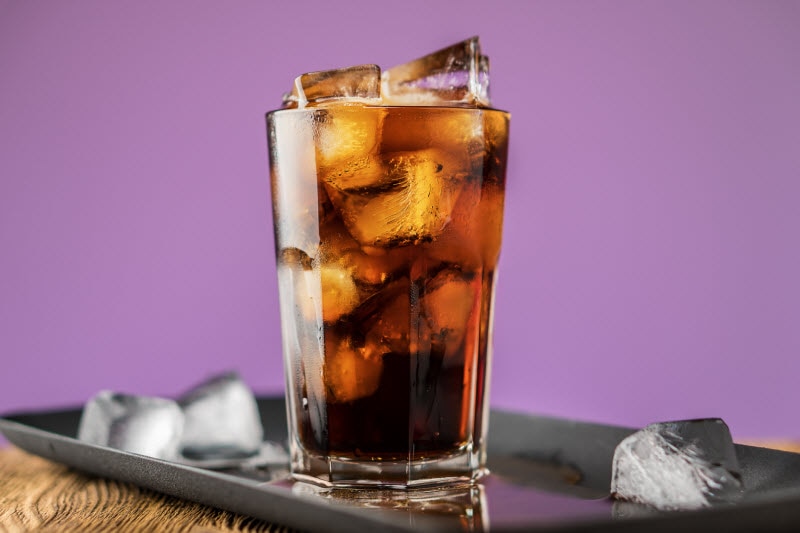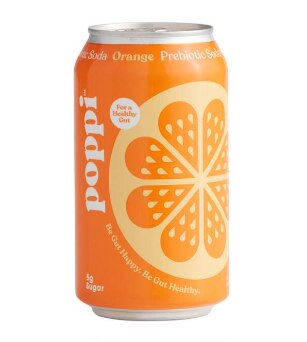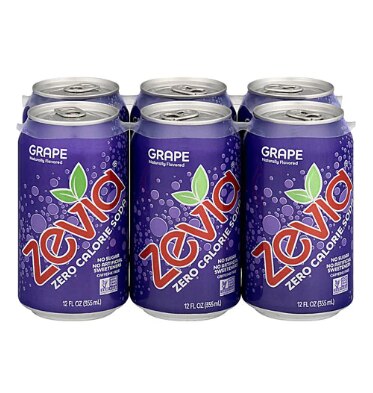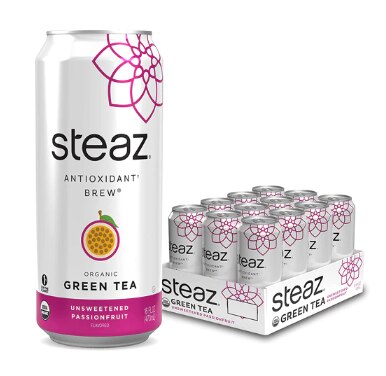Summary: Americans still drink a large volume of soda annually, but consumers are increasingly recognizing the health issues and seeking healthier alternatives, leading to a drop in soda consumption since 2014. In response, a new generation of brands is offering low- or zero-sugar beverages with functional ingredients like probiotics and prebiotic fiber. These alternatives aim to provide classic fizzy flavors with fewer adverse health effects.
Americans drank a whopping 40.4 gallons of soda per person in 2021. Although that’s a decline of 5.4 gallons per person since 2006, soda and other sweetened beverages remain the primary sources of sugar in the American diet.
And no wonder. Soda is everywhere: in vending machines, at convenience stores, and stocked enticingly in supermarket endcaps. And it’s hard to imagine a party without a certain iconic red-and-white logo peeking out of the cooler.
Despite major health organizations like the Centers for Disease Control, the American Heart Association and the World Health Organization sounding the alarm over the adverse effects of drinking liquid sugar, many people are still stuck in their soda habits. But some innovative brands are seeking to change that by introducing healthier soda alternatives.
Is soda really that bad for you?
Here’s the problem with standard sodas: Drinking a single can puts you over the recommended sugar limit for the day. The American Heart Association advises capping daily sugar intake at no more than 36 grams (9 teaspoons) if you’re a man or 25 grams (6 teaspoons) if you’re a woman. A 12-ounce soda typically contains about 40 grams of sugar—that’s 10 teaspoons.
Excess sugar intake has been linked to a higher risk of several conditions:
- Type 2 diabetes
- Heart disease
- Non-alcoholic fatty liver disease
- Tooth enamel erosion and cavities
- Metabolic syndrome
High-fructose corn syrup, a sweetener in many popular sodas, may have even more significant health impacts than regular sugar. Eating (or drinking) a lot of fructose can raise blood sugar and reduce insulin sensitivity, which raises your risk of developing diabetes. Fructose consumption is also associated with higher levels of inflammation and oxidative stress. This combination may accelerate aging and increase the likelihood of chronic disease.
Is drinking diet soda bad for you?
While often marketed as a healthier option, diet soda is not a harmless replacement for sugary beverages, and recent news highlights significant concerns. A major study presented at the United European Gastroenterology Week found that drinking as little as one can of artificially sweetened soda per day was linked to a 60 percent higher risk of developing metabolic dysfunction-associated steatotic liver disease (MASLD), which is actually greater than the 50 percent risk associated with regular soda.
Researchers suggest the artificial sweeteners in diet drinks may disrupt the gut microbiome, which can lead to metabolic issues and increased sweet cravings. Ultimately, health experts agree that replacing either sugary or diet sodas with water significantly lowers health risks.
Soda and gut health
Part of the problem may be soda’s effect on your gut. All that sugar can throw your microbiome out of whack and allow pro-inflammatory microbes to flourish. This state of dysbiosis can disrupt your immune system and put you in a state of chronic low-grade inflammation—both of which are associated with higher disease risk.
Reaching for sugar-free diet soda doesn’t fix the problem. The artificial sweeteners in these sodas appear to alter the microbiome in ways that can promote weight gain and diabetes. One study found that mice fed artificial sweeteners became obese, possibly because of an increase in gut bacteria that extracted more energy from the food they ate. In humans, sweeteners like saccharin and sucralose may cause blood sugar imbalances by changing the populations of gut bacteria that control glucose tolerance.
Are there healthy alternatives to soda?
More Americans are becoming aware of these issues and are seeking healthier beverage options. Calorie consumption from soda has decreased 11.8% since 2014 while sales of low- and zero-sugar beverages increased 8.6%. In response to the demand, brands are incorporating natural sweeteners and functional ingredients into new formulas with potential health benefits.
Top healthy soda brands
You can try the trend for yourself with one of these better-for-you beverages:
- Culture Pop uses fruit juices, herbs and spices to create unique flavors with no added sugar—but they do add probiotics to feed good gut bacteria.
- Health-Ade Pop is a kombucha-meets-soda combination sweetened with fruit juices and monk fruit that has only one-eighth of the sugar in most regular sodas.
- OLIPOP enriches classic soda flavors with 9 grams of prebiotic fiber per can and uses stevia as a sweetener to keep sugar content low.
- Poppi combines cane sugar with stevia in low-sugar flavors that range from Classic Cola to Raspberry Rose and adds inulin fiber for a gut-healthy boost.
- Zevia zero-calorie sodas are sweetened with stevia and available in caffeinated and caffeine-free varieties.
Keep in mind that, although they have little or no sugar, these soda alternatives aren’t one-to-one replacements for a regular soda habit. Sweeteners like stevia and monk fruit don’t appear to cause blood sugar imbalances or disrupt gut health, but the sweetness may still drive cravings for other sugary foods. Your healthiest option is to move toward a diet with as few sweetened beverages as possible.
How to kick the soda habit for good
Saying goodbye to soda is possible, even if you’re used to drinking it every day. Start with small steps to cultivate habits that help you cut back on sweetened drinks:
- Change your daily route to avoid vending machines or stores where you usually buy soda.
- Try fruit-sweetened sparkling water when sugar cravings hit.
- Beat the afternoon slump with an energizing green protein smoothie.
- Make iced tea with herbal or fruit tea blends.
- Use an infuser bottle to turn regular water into a fruit- or herb-flavored treat.
- Snack on fruit or dried fruit when you want something sweet.
Of course, there’s nothing wrong with having a healthy soda alternative once and a while. These innovative beverages are fun to drink, and some may have benefits compared to traditional soda. Pick some up for your next party, and enjoy the classic fizzy flavors without all the sugar.
Can I make healthy soda?
While the label “soda” usually implies an unhealthy dose of sugar or artificial sweeteners, you absolutely can craft a sparkling beverage that supports your health goals. Think of it not as replacing soda, but as creating a functional drink. By combining carbonated water with gut-friendly additions like a teaspoon of apple cider vinegar, a blend of muddled herbs such as mint or basil or natural sweeteners like monk fruit, you gain complete control over the ingredients. This DIY approach allows you to satisfy the desire for fizz and flavor without the chemical load or excessive sugar found in commercial soft drinks, turning a potential habit into a genuinely refreshing, personalized wellness drink.
Frequently Asked Questions
How do zero-calorie natural sweeteners like stevia and monk fruit affect gut health?
While often seen as healthier choices than artificial options, the research on natural zero-calorie sweeteners and gut health is still developing and provides mixed results. Stevia and monk fruit are generally recognized as safe, but some animal and small human studies suggest they may potentially alter the balance of the gut microbiome. Since these sweeteners are not fully digested, they interact with gut bacteria. For most people, moderate consumption is fine, but it is best to stick to whole foods when possible and consult a physician if you have underlying gut issues.
When comparing alternative sodas, what should I look for on the ingredient list besides sugar?
When evaluating newer “better-for-you” sodas, carefully examine the type of sweetener used and look for functional ingredients. While low sugar is critical, check that the product is not relying on controversial artificial sweeteners like aspartame or sucralose. Instead, look for natural sweeteners like stevia, monk fruit or allulose. Additionally, check for beneficial functional ingredients such as added prebiotic fiber, which supports gut health, or live probiotic cultures, which aid digestion.
How quickly should I expect to see benefits from switching to soda alternatives with prebiotics and probiotics?
The timeline for seeing benefits from switching to alternative sodas with functional ingredients varies greatly. Immediate benefits may include a reduction in sugar crashes and better hydration. However, noticeable changes related to prebiotics (which feed beneficial gut bacteria) and probiotics (which add live bacteria) often take several weeks to a month of consistent consumption to potentially impact your overall gut microbiome balance. These sodas are best viewed as a supportive part of a consistently fiber-rich and varied diet.
Are kombucha and other fermented drinks a true replacement for soda, or do they have their own downsides?
Kombucha is a fermented tea that provides fizz and may offer probiotic benefits, making it a popular alternative to soda. However, it is important to check the sugar content on the label, as some commercially brewed varieties have a sugar level similar to that of traditional soda. Also, the fermentation process creates trace amounts of alcohol, which is usually under , and its acidity is still high enough to potentially affect tooth enamel with frequent consumption. Look for low-sugar kombuchas or enjoy it in moderation.




